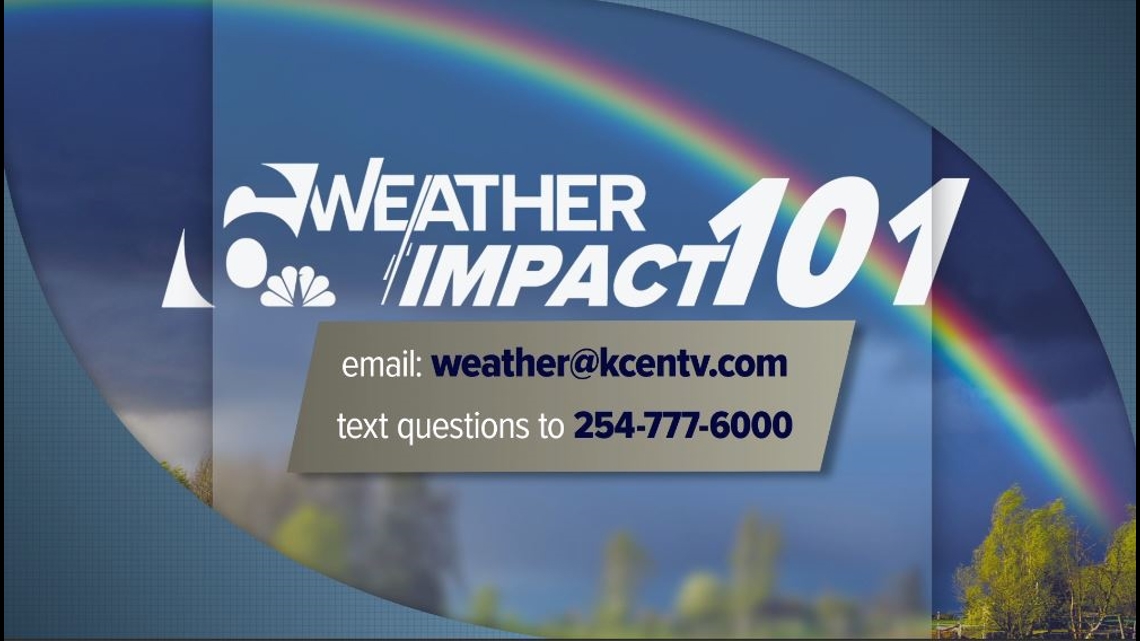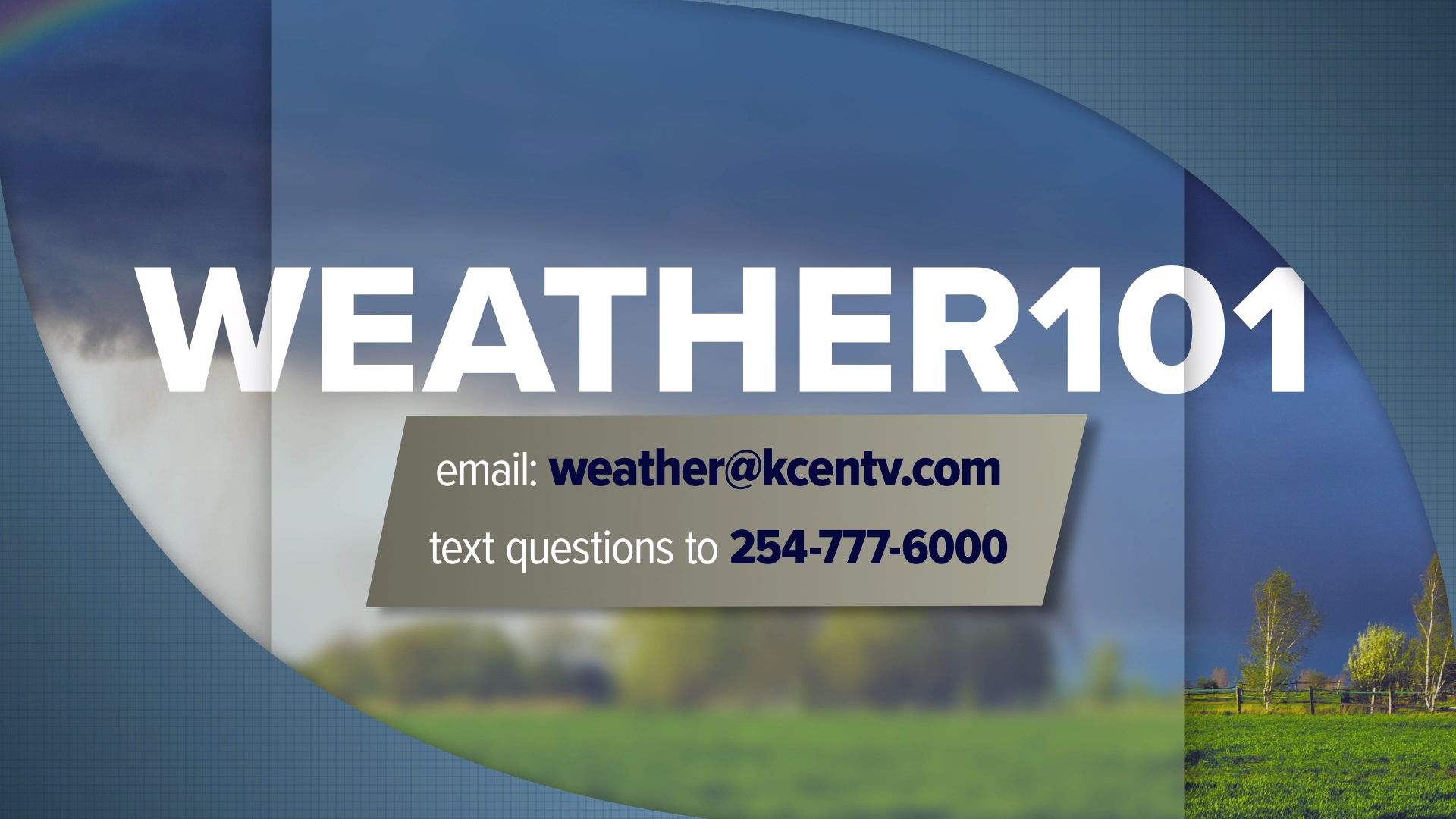

Hello everyone, Meteorologist Whitney Huddleston here. We have some pretty wild temperature swings here in Central Texas, and in this weather 101 I will break down some information about how our local weather pattern may affect your mood.
In this episode of our weather 101 series, we're going to discuss several of the common weather patterns we typically see that are on the extreme side, how each of these patterns may affect your mood, and what the experts are saying about this phenomenon.


Photo Source: Modern Behavioral Health
Summer is often associated with sunshine and many of us know that it is considered healthy to soak-up the bright weather. I have oftentimes heard that there is a correlation between sunshine and the release of serotonin, bringing us a calming and happy type of feeling. Some people have feelings of excitement and make outdoor plans, vacations, and other upbeat gatherings at this time of year. But what about the opposite? According to the University Health Alliance, Seasonal Affective Disorder, otherwise known as acronym (SAD), goes up for some folks during the Summer season. SAD, which affects about 4% to 6% of the U.S. population, occurs for around 10% of people in Summer vs. Winter. Counties near the equator and areas that see numerous hot, sunny days without a change in the weather pattern report many more instances of people feeling this way compared to cooler areas that receive significant rainfall or changes in the weather pattern during summer. Some symptoms of experiencing SAD during summer include feelings of irritability, weight loss, trouble sleeping, agitation, and restlessness.
Believe it or not, allergies can also disrupt your mood and throw you into a negative pattern. Allergies are seen throughout the year here in Central Texas; springtime is one of the common times that people report being miserable with allergic reactions. According to Dr. Brunilda Nazario, Allergy sufferers who say symptoms like sneezing, sniffling, and red, itchy eyes make them miserable may not be exaggerating. Recent studies show an association between seasonal allergies and clinical depression. While researchers can't say that allergies actually cause people to feel depressed, it does appear that allergy sufferers are more vulnerable to depression. Interestingly, when researching allergies and moods I saw a lot of information about Hay fever, which affects many Central Texans in fall and winter. I have personally seen my own husband suffer through this; so much so that he gets a high fever and cannot attend work for several days in some years. Experiencing anxious and distressing feelings as these seasons approach is common and it is important to remember that you are not alone!
What about severe weather, including the threat of severe thunderstorms and even tornadoes? I have personally seen many Central Texans suffer from fear of storms and dread of the spring season because of the dangerous weather that we will potentially see annually. Notable events that shake local towns such as the 2022 Salado tornado or 2024 Temple tornado can bring long-term affects of anxiety and fear to all ages and types of people. Your circadian rhythm can actually be thrown off by these feelings of anxiety, which can affect your sleep pattern, appetite and of course your overall mood. If you’ve ever gotten a tingly, uneasy feeling before a storm, that was likely your body sensing a drop in atmospheric pressure. A 2019 animal study suggests drops in atmospheric pressure can activate the superior vestibular nucleus (SVN), a part of your brain that controls balance and perception. This study involved mice, but humans also have an SVN. The study authors suggest SVN may rile up your body’s stress system before a storm, making you feel on edge. Circulating stress hormones can also sensitize your nerve endings, which could be why some people get chronic pain flare-ups when the air pressure is low.
Many of us know that Winter can affect your mood. That is how I know what the SAD affect is; I experience a bit of seasonal depression when it gets cold and dreary from January until early March in Central Texas. The lack of rain that time of year in our area also brings my mood a bit down; it may you, too. What are experts saying about all of this? A few recommendations would be if you know you are prone to experiencing certain feelings at a certain time of year, acknowledge your feelings and address them. Maybe make plans to visit somewhere cool during summer or find a local movie that is indoors that you can look forward to. You could also use a form of light therapy in winter, when we see much less sunlight and you may experience negative feelings. Of course, your doctor would have good recommendations for how to combat any feelings associated with your mood and the weather.
Overall, I would say the answer is absolutely yes; the weather can absolutely affect your mood and even contribute to larger long-term mental health issues, exacerbating feelings you may already be having. Want to hear more about features of Central Texas and how they may affect you? Don’t forget to check out all of our other weather related content on 6+, Youtube, Kcentv.com and of course, on Texas Today or News 5, 6, and 10.
Don't forget to tune in to 6+ next week when Chief Meteorologist Matt Farrell will be educating you about something new!
For now, I'm Whitney Huddleston, 6 News Weather. Here to help!

